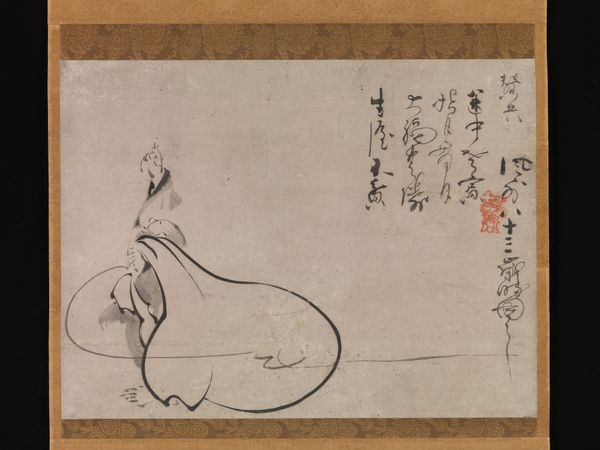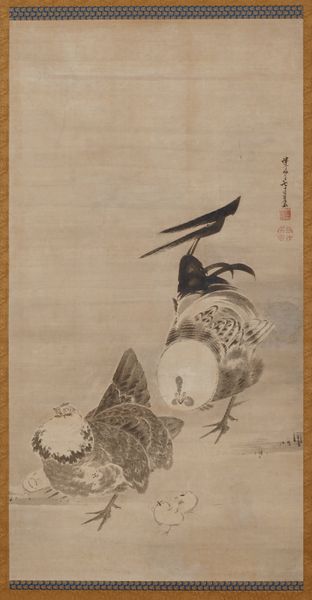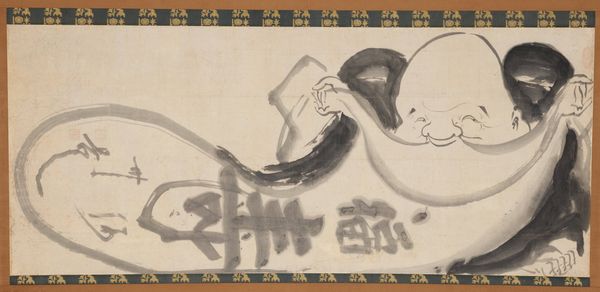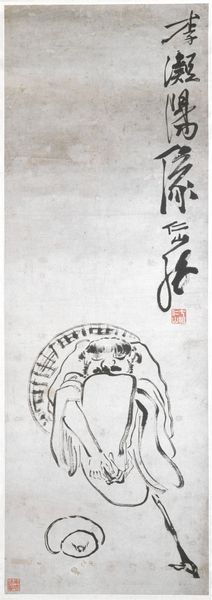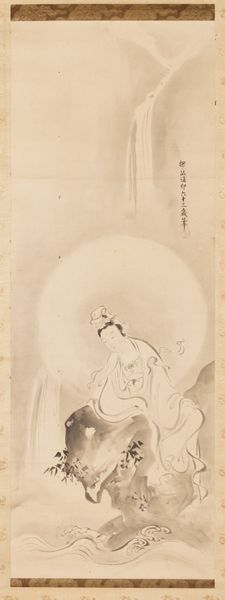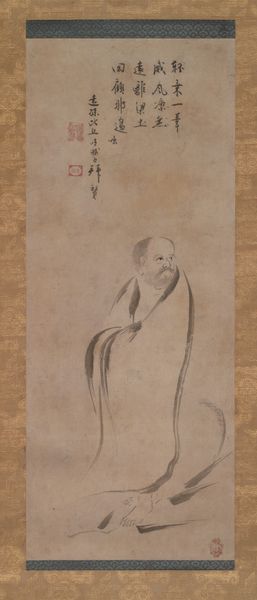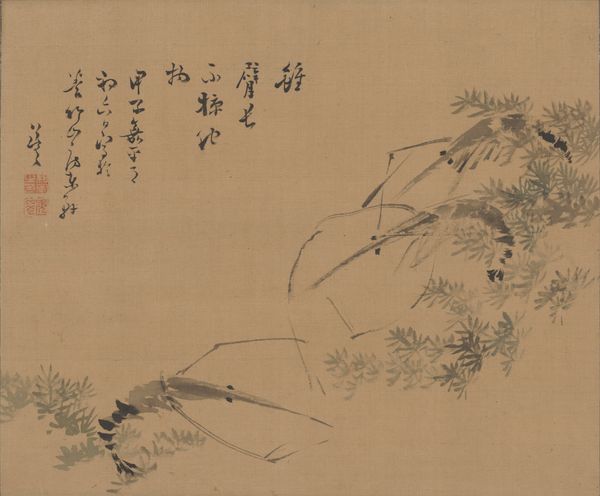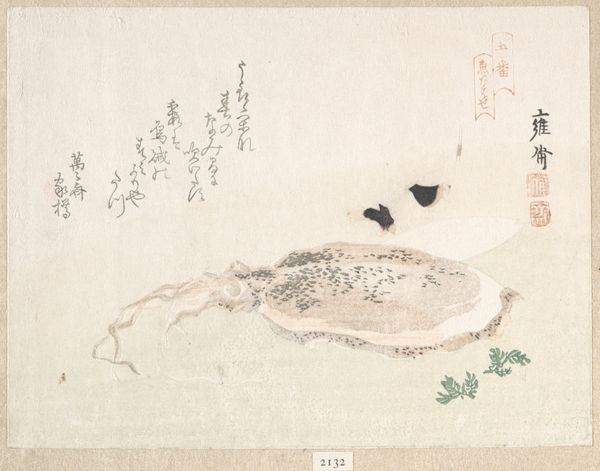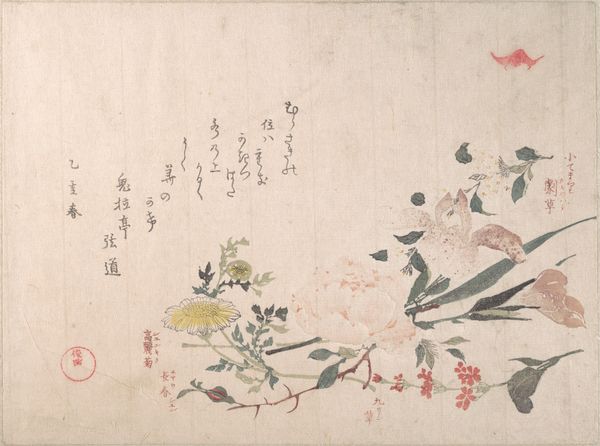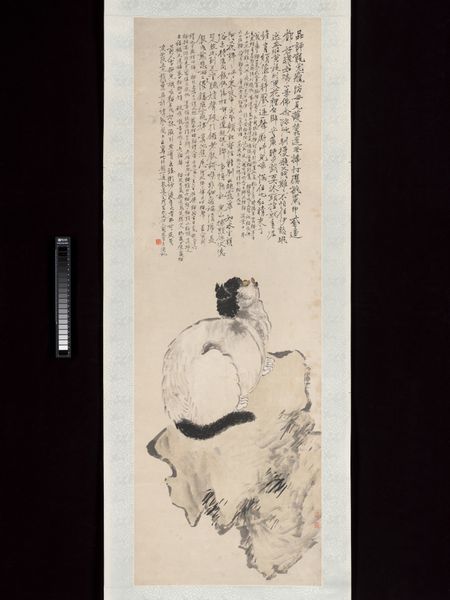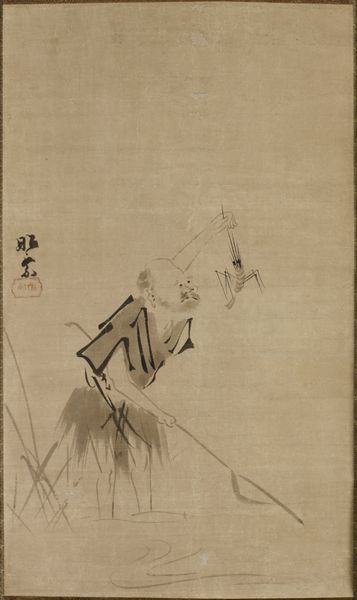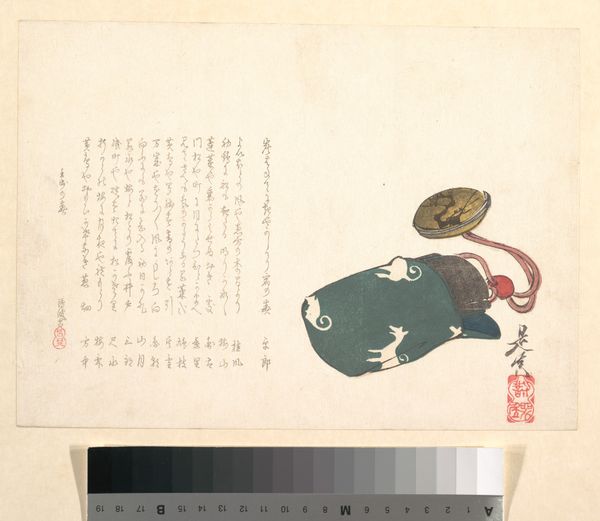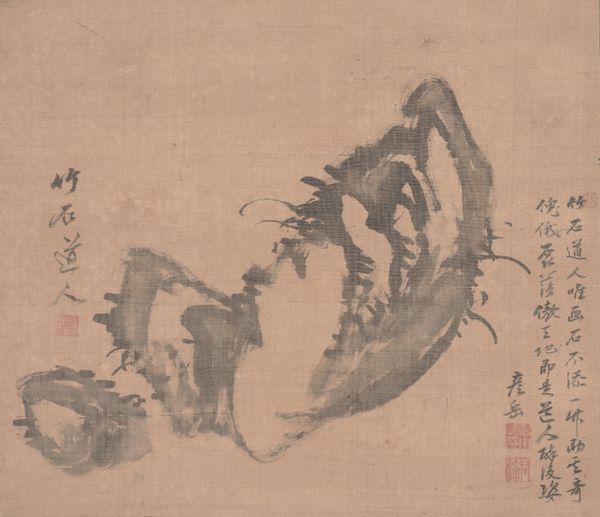
drawing, paper, ink-on-paper, ink
#
portrait
#
drawing
#
asian-art
#
paper
#
ink-on-paper
#
ink
Dimensions: 8 3/8 x 10 1/8 in. (21.27 x 25.72 cm)
Copyright: Public Domain
Editor: Here we have "Fukurokuju" by Ogata Kōrin, drawn around 1700, using ink on paper. There's something so whimsical about the simple ink strokes, but also very serene. What do you see in this piece? Curator: Beyond the artist’s masterful technique, consider the figure himself. Fukurokuju is one of the Seven Lucky Gods in Japanese folklore, embodying wisdom, longevity, and prosperity. But doesn’t this depiction, with its elongated head and gentle expression, challenge conventional notions of power and success? How might his attributes – wisdom, longevity – be interpreted in relation to socio-political movements? Editor: I see what you mean. His peaceful expression feels like a counterpoint to the constant drive for achievement often seen in society. But, I am curious how this ties into social justice issues? Curator: The Seven Lucky Gods were accessible deities, representing virtues desired by commoners during periods of social upheaval and economic disparity. Fukurokuju, in particular, provided solace, subtly critiquing dominant power structures through the ideal of inner peace and quiet contemplation. He's not striving; he *is*. Editor: So you’re saying his image offered a vision of success detached from wealth or power, giving people another way to measure their worth? Curator: Precisely! He is a challenge to any status quo overly concerned with material advancement, particularly as a model for marginalized groups, demonstrating the value of intellect, peacefulness, and long-term vision. Editor: I never would have considered all those layers. It really puts a new spin on appreciating the artwork beyond its surface aesthetic. Curator: Absolutely! And by engaging with these deeper narratives, we enrich our understanding not only of art history, but also of our present moment.
Comments
minneapolisinstituteofart about 2 years ago
⋮
Fukurokuju is one of the Seven Gods of Good Fortune (Shichi fukujin), a group of deities adopted into Japanese mythology from China as early as the 15th century. Fukurokuju's distinguishing feature is an elongated cranium, probably suggesting the vast wisdom he accumulated over his long life. Because Fukurokuju was emblematic of longevity, this charming painting of him would have been appropriate to display at tea gatherings conducted to mark the beginning of a new year. In this way, the host could bestow wishes for good health and long life on his guests.
Join the conversation
Join millions of artists and users on Artera today and experience the ultimate creative platform.
